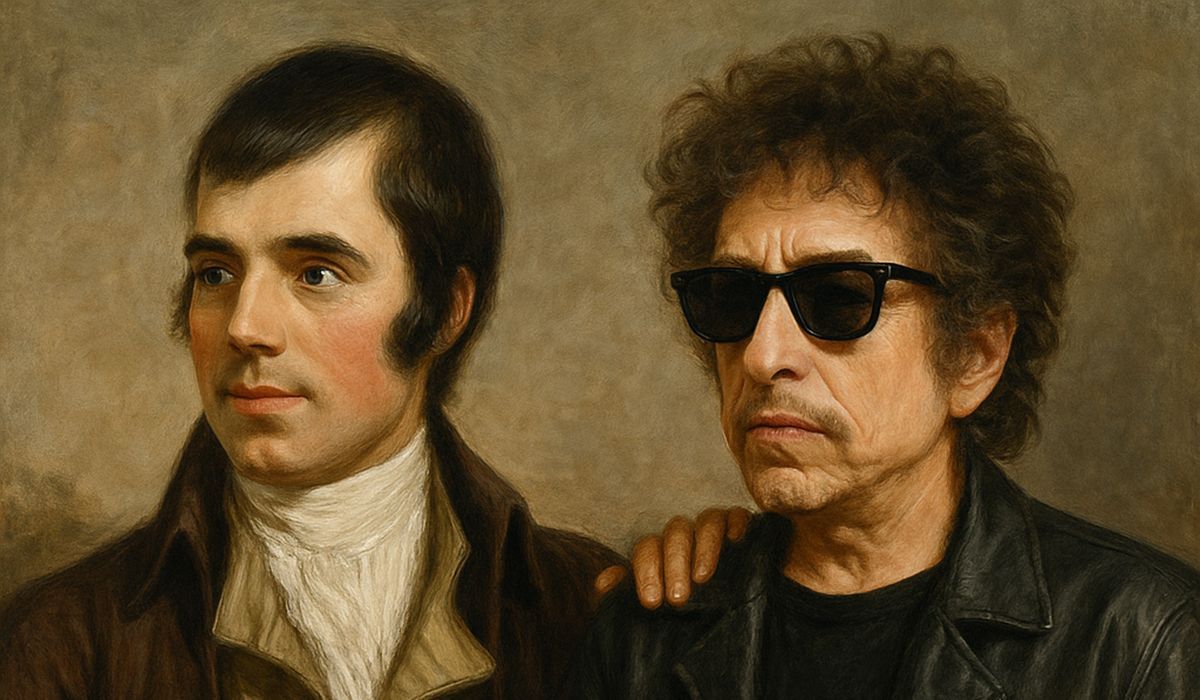AUDIO ORIGAMI BLOG

A Room, A River, A Boy, A Bard
The quiet history behind Audio Origami's listening room.
Some rooms are shaped by hands. Others are shaped by time.
Our listening room, now the heart of Audio Origami, wasn't chosen for convenience or symmetry. It was chosen because something in its stones spoke first. Long before the shelves of vinyl, before tonearms and turntables, before music curled into the corners, this space had already known centuries of voices.
The mill itself reaches back into the 1400s in the records, though its present form, an unusual cruciform footprint, took shape around 350 years ago. The River Doon encloses the mill on two sides, and the lade runs through the mill at the back wall of the listening room, closer than in most mills where the watercourse was kept safely outside. In this dip of land cupped by water, the air grows cold and still in a way that feels older than the building itself.
The listening room sits on the deepest and oldest foundations of the mill. A working space in its earliest life: stone, timber, grain dust, tools. A simple, quiet chamber whose purpose shifted with the needs of the millers who used it.
And it was here, on these old foundations, that a young Robert Burns received some of his earliest lessons. Not the world famous poet yet, just a young boy with sharp eyes and cold hands, sitting in this very room while his first formal teacher, John Murdoch, introduced him to the shape of letters and the pattern of numbers.
Picture it, a small stone chamber, a single small window leaking a little winter light. The murmur of the lade pressed just beyond the wall, steady as breath. The smell of earth, grain and damp timber. A tallow candle quivering in a draft, and the soft chorus of children repeating lines in the dimness. No desks. No chalkboards. Just rough benches, a hornbook, a few primers, and Murdoch's patient voice.
This was education in rural 18th-century Scotland, improvised, practical and rooted in whatever space the community could spare.
And somewhere in that humble room, beneath the quiet river-sound, the spark that would become Scotland's national poet was lit.
Today, the room carries poetry in music instead of lessons. Tonearms trace grooves where ink once traced letters. The river lade still whispers close by, and the old stone walls hold the same calm they did three centuries ago, when a young boy sat here poised to become a national hero.
The room has changed with time, but its spirit remains the same. People come here now to listen to music, the poetry of the modern age. They are quiet. They are listening. They are learning. Records have replaced Murdoch's voice, and the cartridge now pulls the words out of the groove. Those words are no longer the teachers', but often the pupils'.
We feel an enormous duty to preserve this building, and its history, and to let as many people as we can experience it. If you would like to listen in the same room that Robert Burns had his very first formal lessons, email:
stephen@audio-origami.co.uk

